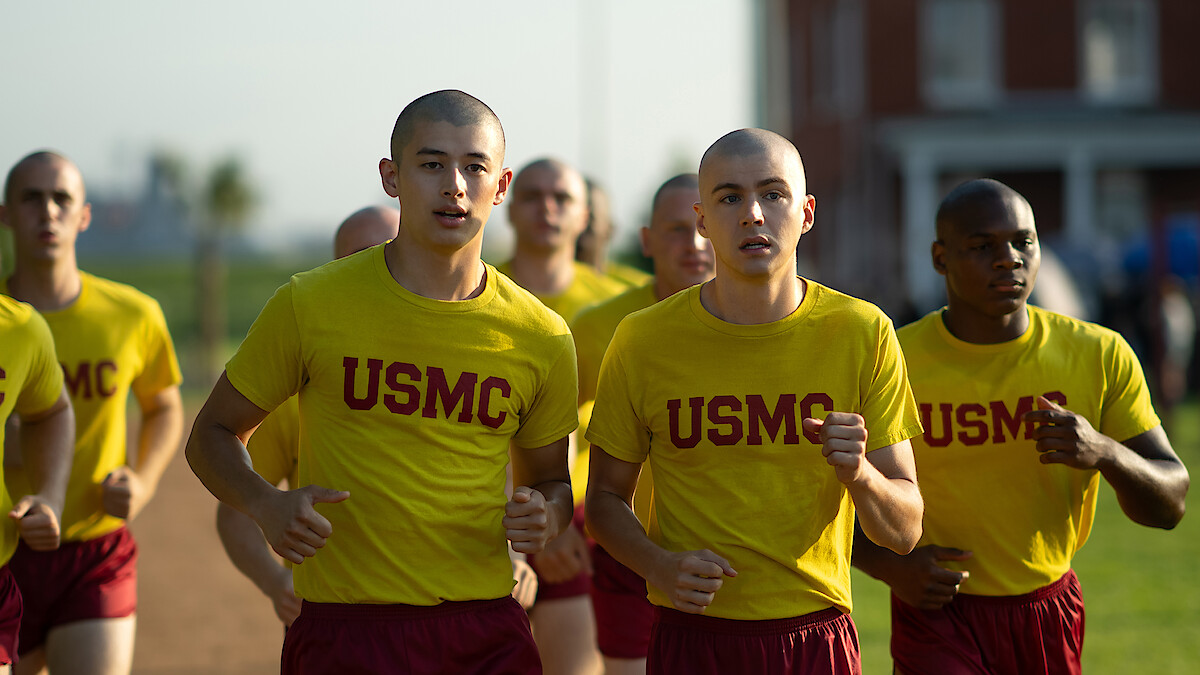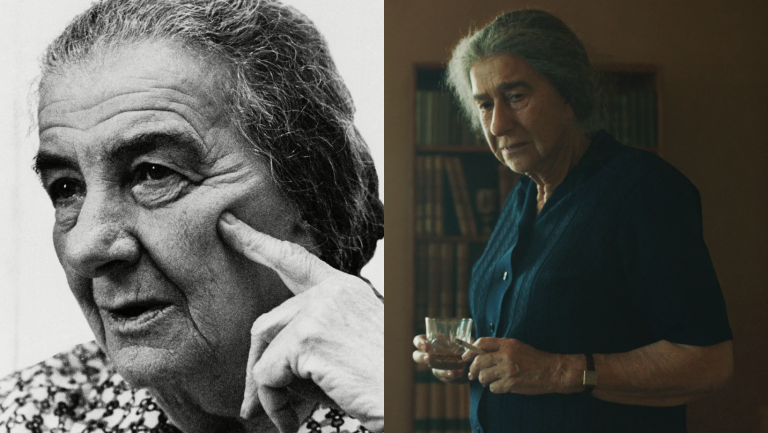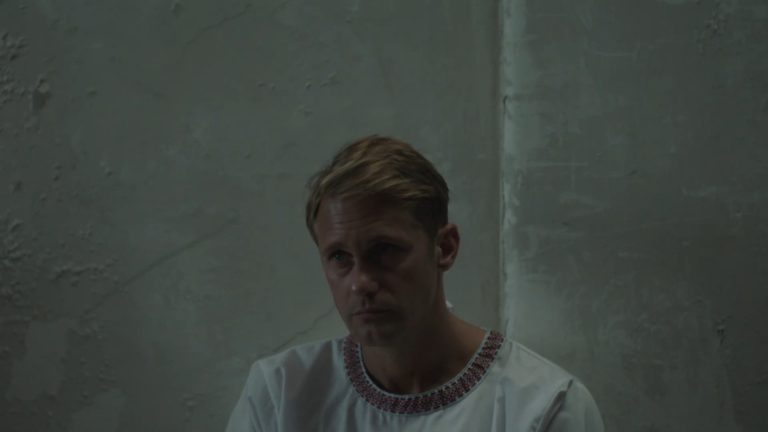PS: This review contains spoilers.
What’s harder than surviving Marine Boot Camp?
Surviving yourself when you can’t come out.
“Boots,” Netflix’s new tour de force, follows Cameron Cope– a weak-hearted, self-pitying, closeted gay teenager who is forced to join the Marines by his best friend, Ray. Bullied for his sexuality and mocked for his mannerisms, Cope takes the plunge, hoping the experience will make him a “stronger man.” What follows is a peculiar platter of rations: torture, motivation, and a beast for a sergeant.
Based on Greg Cope White’s memoir “The Pink Marine,” “Boots” revisits his time at boot camp through an uncommon yet eye-opening queer lens. Set in the 1990s, when homosexual individuals weren’t permitted to train for or serve in the Marines, the series unfolds as a conflicted and layered portrait of identity, masculinity, and repression. Equal parts educational, encouraging, and entertaining, “Boots” thrives on its contradictions.
What makes the show particularly compelling is that it never frames queerness as a limitation– it frames the world’s discomfort and prejudice with queerness as the true antagonist. Through Cope’s fumbling attempts to fit in, his shaky voice, and his relentless desire to belong, the show explores how institutions built on conformity leave no room for individuality. Boot camp becomes both a physical and emotional battlefield: a place where young men are taught to erase their softness to earn strength. The protagonist might not have the biggest muscles, but he carries equal amounts of power as they all.

The series’s strength lies in its ensemble. Though Cope leads the story, his supporting acts form the heartbeat of the narrative. Each recruit carries their own baggage: parental expectations, suppressed insecurities, personal failures– all of which shape them as they step onto Parris Island. Disagreements, petty arguments, moments of violence: the troops see each other at their worst. Yet, by the end, they emerge as men bound by loyalty and brotherhood, regardless of how they started. You come for the drama and the intensity, but you stay for the unexpected love and tenderness that grows between them.
What the story also nails is progress– not just over time, but in spirit. Cope begins as a scared, underconfident boy drowning in people-pleasing and half-truths. By the end of thirteen weeks, he stands as a man of honour, strength, and integrity. Ray, his best friend, is driven to join the Marines by his father, whom he dutifully calls “Sir.”
Burdened by the need to be number one– to be Mr. Perfect– he eventually learns that true excellence isn’t about meeting someone else’s standards, but embracing his own. From Slovacek’s teamwork and Santos’s resilience to Nash’s selflessness, Knox’s tenderness, and Sergeant Sullivan’s harsh but insightful mentorship, Boots delivers a moral through every arc it unfolds.
Also Read: The 15 Best Netflix Original TV Shows
The relationship between Sullivan and Cope is easily the show’s emotional core. It’s paternal, but not in a domineering way– in a deeply human one. Having endured similar challenges as a closeted Marine, Sullivan trains Cope with a kind of brutal compassion. Their quiet exchanges: the TP scene at the dumpster, the tussle in the ring, and especially their final goodbye, speak volumes about masculine intimacy, a kind of care that rarely finds space in stories like these. You can feel the generational ache in Sullivan’s silence: the pain of a man who has had to live without softness, now teaching another to fight without losing it.
Through them, “Boots” also examines the culture of the Marines: a space built on paradoxes. There’s a fine line between discipline and destruction, between pushing someone to grow and pushing them over the edge. The show doesn’t shy away from depicting toxic masculinity, racism, fatphobia, or homophobia. Some of these moments are played with subtle humour, others with sharp discomfort. Yet what “Boots” does best is refuse to glorify any of it. It’s not romanticization; it’s representation. The ugliness is there because it was real– an unfiltered Ctrl C + Ctrl V of history, where words have weight and actions carry consequence.

Additionally, the series thrives in its moral grey zones, posing difficult questions through subtle, deliberate choices. In the final episode, when Cope’s alter ego asks whether he’d hide his identity to remain a Marine or sacrifice the uniform to live freely, the show lands its most powerful blow. It reminds us that the military’s greatest lesson isn’t obedience or strength– it’s the cost of both. Cope sacrifices his sexuality to belong, while Sullivan, who has already sacrificed enough, chooses freedom. The result is a rare, tender symmetry between two men who want the same thing: dignity.
The performances elevate every beat of this story. Each actor brings emotional precision to their role, but it’s their chemistry that makes “Boots” unforgettable. A special shoutout to Angus O’Brien as Hicks: his otherworldly, outlandish behaviour adds humour and light to an otherwise intense landscape. His absurdity becomes necessary; it gives the series a pulse of humanity when it starts to drown in its own heaviness.
If there’s one element that falters, it’s Cope’s mother’s subplot. Though it adds dimension to his character, it lacks the momentum and emotional pull of the boot camp sequences. Perhaps that time would’ve been better spent exploring Sullivan’s next chapter, or the twins’ reckoning with their father’s death– both subplots that left intriguing loose ends.
Still, “Boots” stands as one of Netflix’s most emotionally intelligent series in recent years: complicated yet comical, raw yet redemptive. It forces us to ask: what does it mean to survive when survival demands erasure? What is perseverance, and what is self-destruction? It leaves us not just reflective, but quietly moved. At its core, “Boots” isn’t about becoming a Marine. It’s about becoming a man– and learning that the two may or may not be the same thing.







